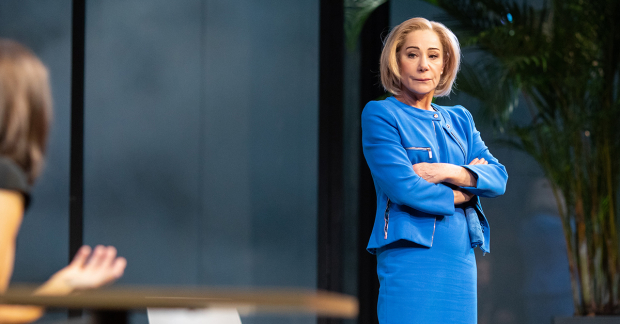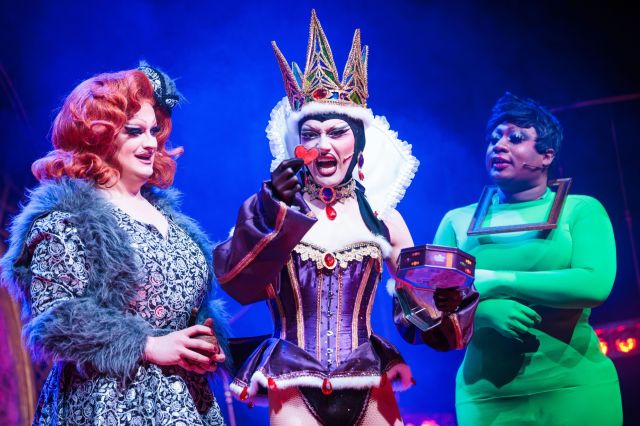Review: Two Ladies (Bridge Theatre)
Nancy Harris’ play has its premiere at the Bridge Theatre

© Helen Maybanks
I suppose you could make the case that when events in the political real world are stranger than fiction, then it's fine if events in a political fictional world test credulity too. But that's being kind to Nancy Harris' very odd new play which takes two first ladies who owe more than a passing resemblance to Melania Trump and Brigitte Macron and sets them in an empty conference room on the Cote d'Azur for a chat.
The result is curiously soporific. Despite Rolls Royce treatment from director Nick Hytner, a design from Anna Fleischle that is specific in every detail, and spirited, intelligent performances from Zoë Wanamaker (as Helen, the Macron-inspired wife) and Zrinka Cvitešic (as Sophia, the Melania figure) the play putters along with all the purpose of a clapped out banger on a Sunday outing.
My friend asked at the end if it was translated; and it's true that Harris' text feels blurry as if it has been forced through someone else's imagination. It is all surface, with nothing lurking beneath, which is a shame because as the programme essays reveal, the idea of presidents' wives, women who are constantly seen but not heard, is a good one. In fact, it starts promisingly with Sophia entering the room with her white suit covered in dark, red blood – animal blood, as it turns out, hurled at her by one of the demonstrators who surround the building.
The women are trapped, both by the agitators, who are protesting outside a meeting which is to gain European support for Sophia's husband's plan to go to war against an unnamed enemy, but also by their husbands whose expectations of support comes with strong strings attached. Sophia's president doesn't talk to her except in public and uses her as a trophy to increase his own sense of power; Helen's equal partnership with her own much-younger husband is also coming under pressure.
There are some good lines, thrown off with aplomb. "Behind every great man is a silent woman in a designer dress," observes Sophia, shrewdly. At another moment, Helen, who is in her 60s, rails against people praising her wisdom. "I'm not wise because I'm old, I'm wise because I'm better than them." But these shafts of light are lost in dialogue that is often inert, and generally unrealistic. A late tilt into melodrama adds some dramatic interest but sacrifices all credibility.
Amidst all this Wanamaker and Cvitešic still shine, holding the attention. The former is brilliant at suggesting vulnerability beneath a waspish, self-possessed exterior; the latter at finding complexity within a character who could seem very doll-like. Both are immensely watchable. So too are Lorna Brown, as the America press officer Sandy, all bustle and social-media focus and – briefly – Raghad Chaar, as the hospitality girl serving drinks.
I found myself thinking I'd quite like to watch a play in which those four women sat around and discussed how hard it is for women to make their way in the world and the choices and compromises it requires. That play glimmers beneath the surface of this artificial construct, and it feels like an opportunity wasted.



















